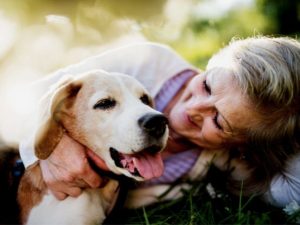Questions to Ask Before the Elderly Adult Adopts a Pet
Is it the right pet?
Research the pet’s age, temperament, size, and energy level to ensure the pet would be a good fit for the elderly adult adopting it.
Are they financially stable?
Pets can be expensive, so it is important to assess the costs associated with pet care prior to committing to adoption of the pet. This can be especially difficult for those on a fixed income.
Have they previously owned a pet?
If the elderly adult has never owned a pet previously, pet responsibilities may be overwhelming to the elderly adult.
Can they adjust their routine if needed?
The elderly adult may need to adjust their routine to accommodate for proper care of the companion animal. It is important to assess whether the pet would fit into the elderly adult’s lifestyle.
Is there a back-up plan?
If the elderly adult is admitted to the hospital or passes way; where would the pet go? It is important to have a plan in place or the companion animal may be sent back to the shelter.
How does the edlerly adult handle loss?
It is important to consider that the companion animal may pass way prior to the elderly adult. It is important to assess how the elderly adult processes grief and if they are emotionally stable enough to handle this possibility.
For some elderly adults, the possibility of this loss may be too much to bear, and they may choose against having a companion animal for this reason.
Which animals make the best companion animals for elderly adults?
Cats- Cats do not require walks or constant attention and may be more self-sufficient than a dog.
Dogs- Dogs enjoy regular exercise and playtime and often require a lot of attention.
When choosing between a cat or a dog it is important to consider the elderly adult’s personality and what they prefer. It also depends on the elderly adult’s age and energy level; if the elderly adult is disabled or wheelchair bound it will not be possible for them to walk a dog.
Where should companion animals come from?
It is always helpful to adopt from an animal shelter when able. There are typically several cats and dogs available for adoption at your local shelter and in need of loving homes. Not only are they more ethical than supporting breeders, but animals from shelters are adopted with a smaller fee than the fee you may pay at a pet store.
For the elderly adult on a fixed income this option is especially helpful.









